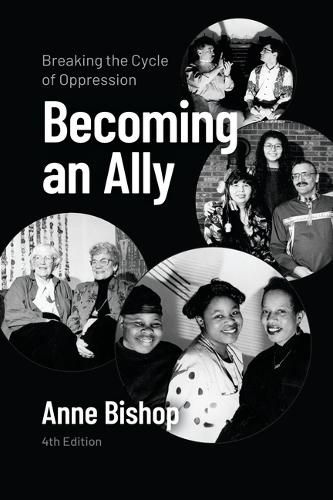Readings Newsletter
Become a Readings Member to make your shopping experience even easier.
Sign in or sign up for free!
You’re not far away from qualifying for FREE standard shipping within Australia
You’ve qualified for FREE standard shipping within Australia
The cart is loading…






When the bestselling first edition of Becoming an Ally was published in 1994, the language of "ally" was new. Three decades later, it is everywhere -- used, misused, embraced, rejected and interpreted in many different ways. This groundbreaking book has been used across the world by individuals and institutions to identify how privilege works and how to transform their roles in perpetuating inequality.
In this new edition, educator Anne Bishop has updated her accessible guide on what structural oppression is and how people can work together toward equity. Bishop explores oppression's impact on individuals, organizations and cultures. Within that larger framework, she digs through decades of claims and conflicts to examine the crucial role of allies on the path toward justice.
This book is for social workers, teachers, medical professionals, policy makers and anyone who wants to understand the origins of oppressive societies in order to build more just alternatives.
$9.00 standard shipping within Australia
FREE standard shipping within Australia for orders over $100.00
Express & International shipping calculated at checkout
When the bestselling first edition of Becoming an Ally was published in 1994, the language of "ally" was new. Three decades later, it is everywhere -- used, misused, embraced, rejected and interpreted in many different ways. This groundbreaking book has been used across the world by individuals and institutions to identify how privilege works and how to transform their roles in perpetuating inequality.
In this new edition, educator Anne Bishop has updated her accessible guide on what structural oppression is and how people can work together toward equity. Bishop explores oppression's impact on individuals, organizations and cultures. Within that larger framework, she digs through decades of claims and conflicts to examine the crucial role of allies on the path toward justice.
This book is for social workers, teachers, medical professionals, policy makers and anyone who wants to understand the origins of oppressive societies in order to build more just alternatives.